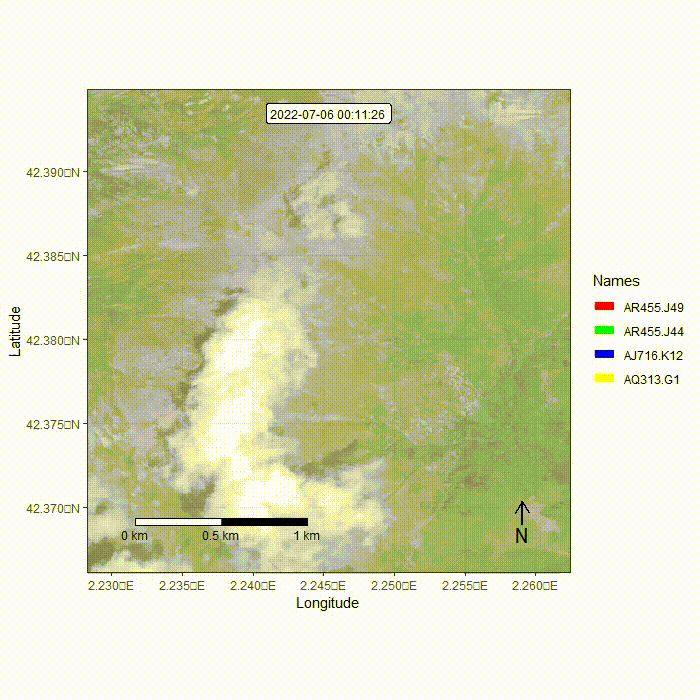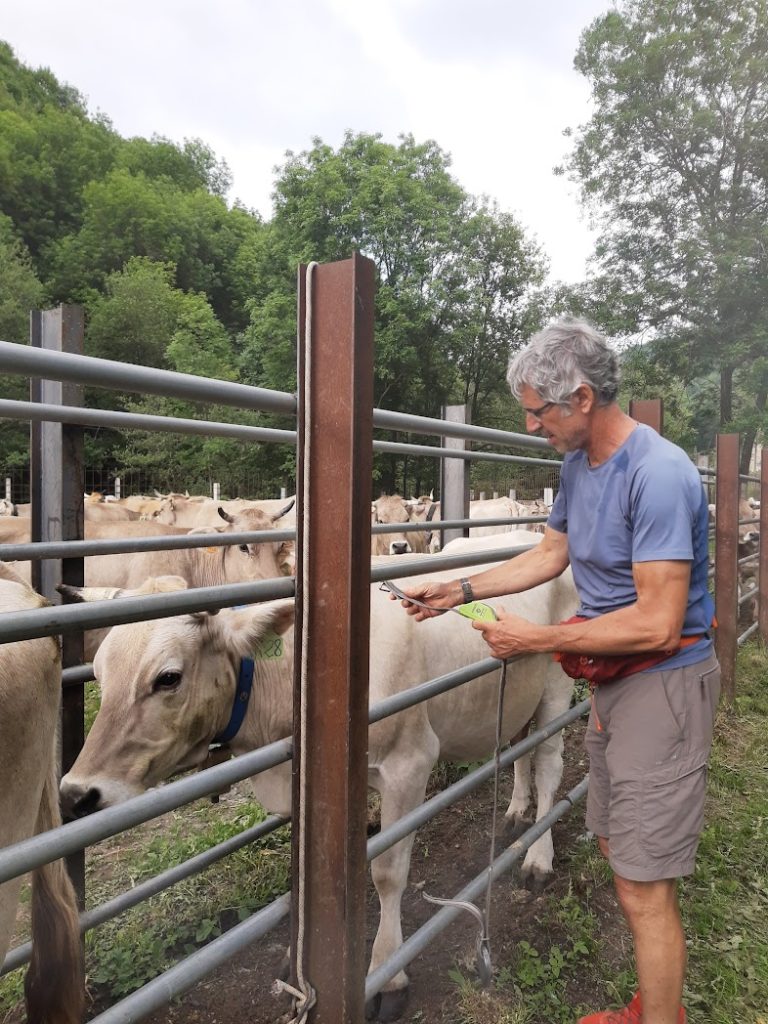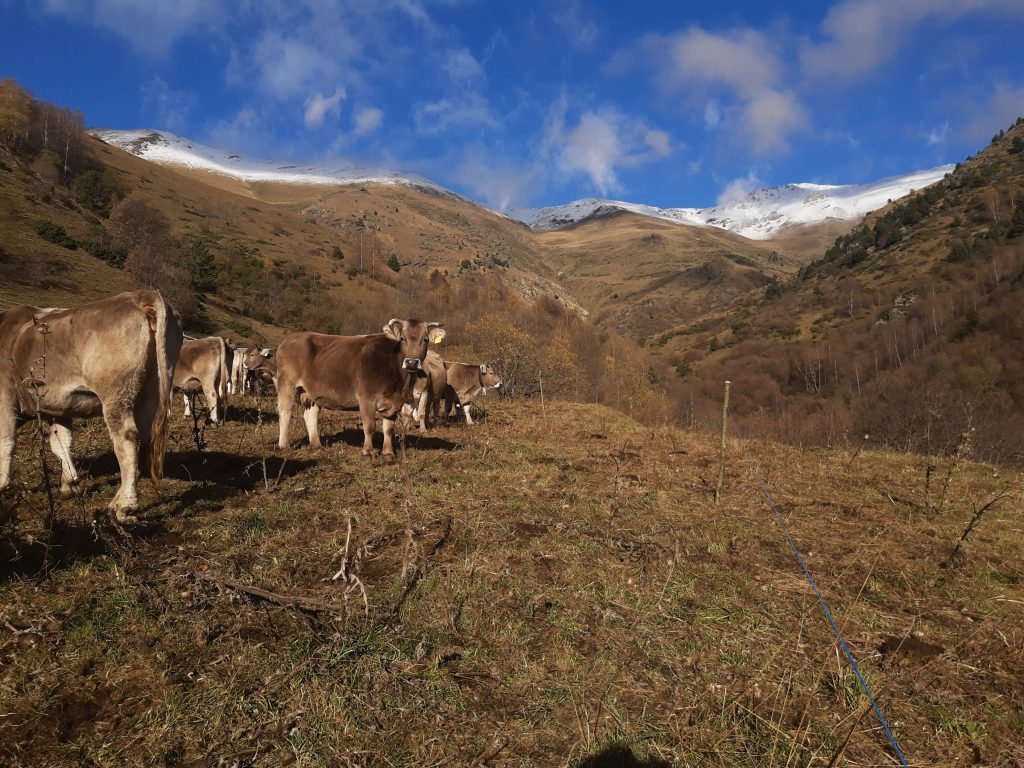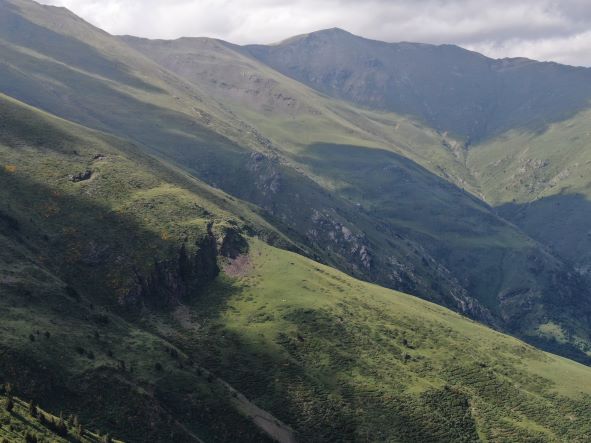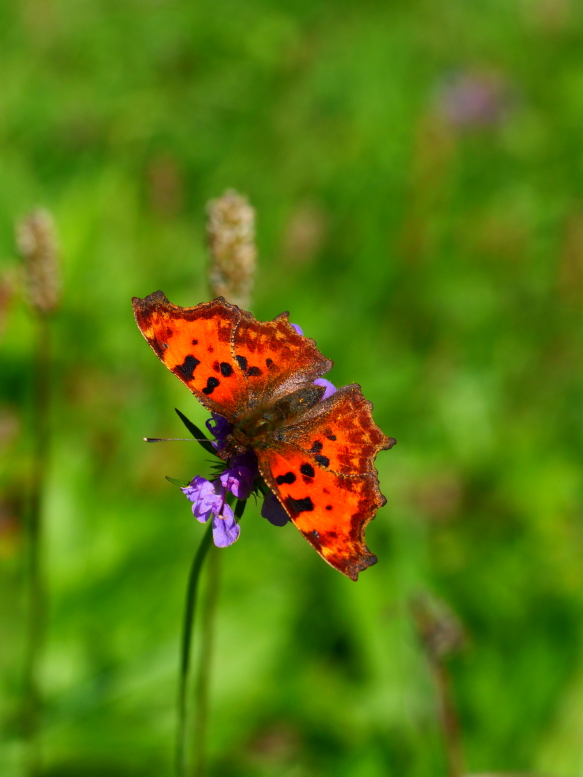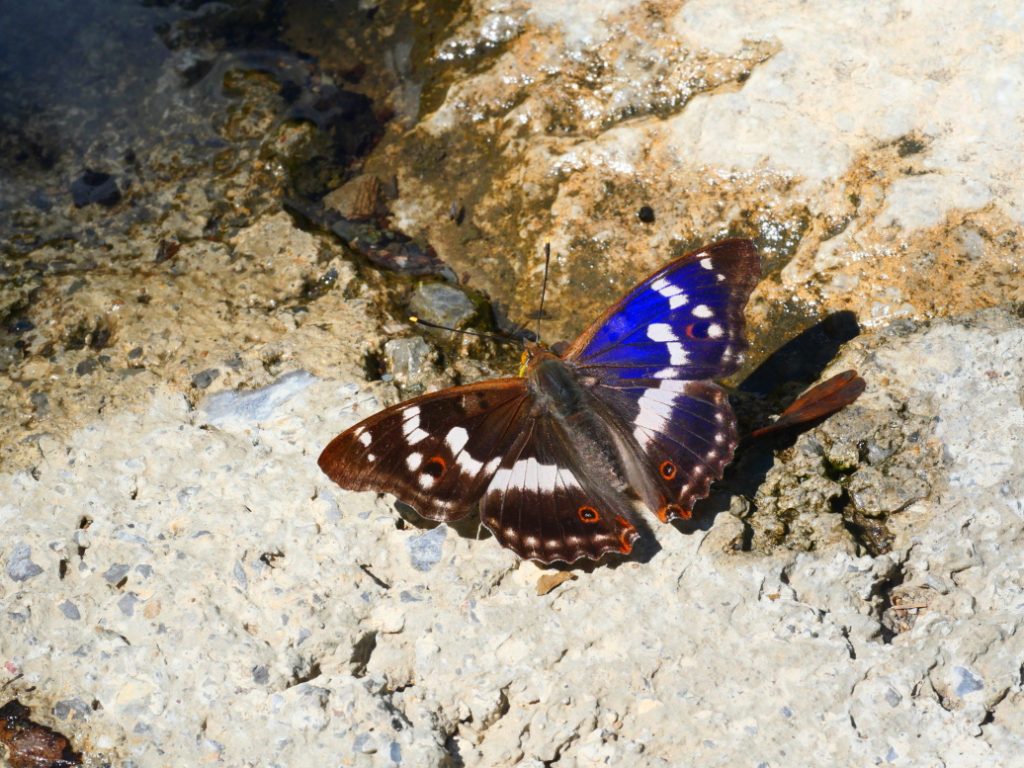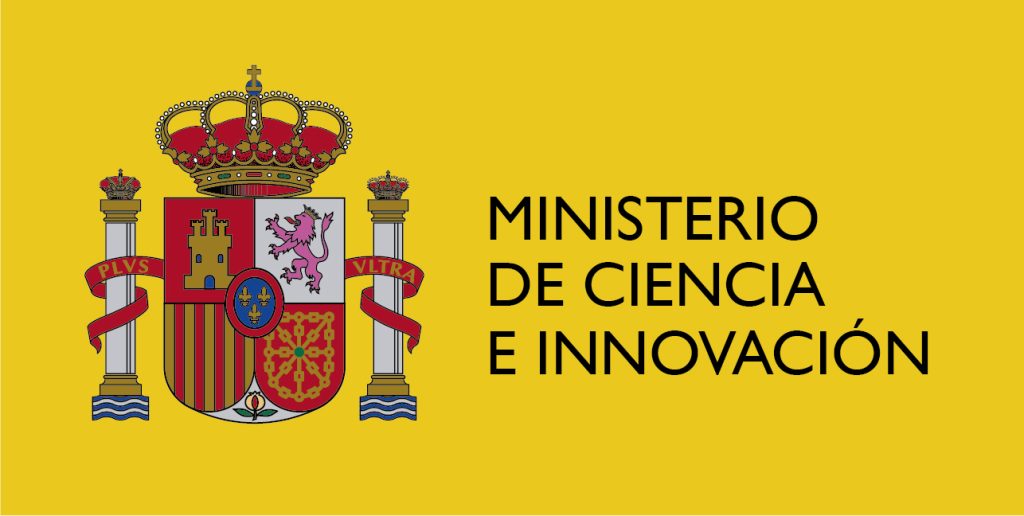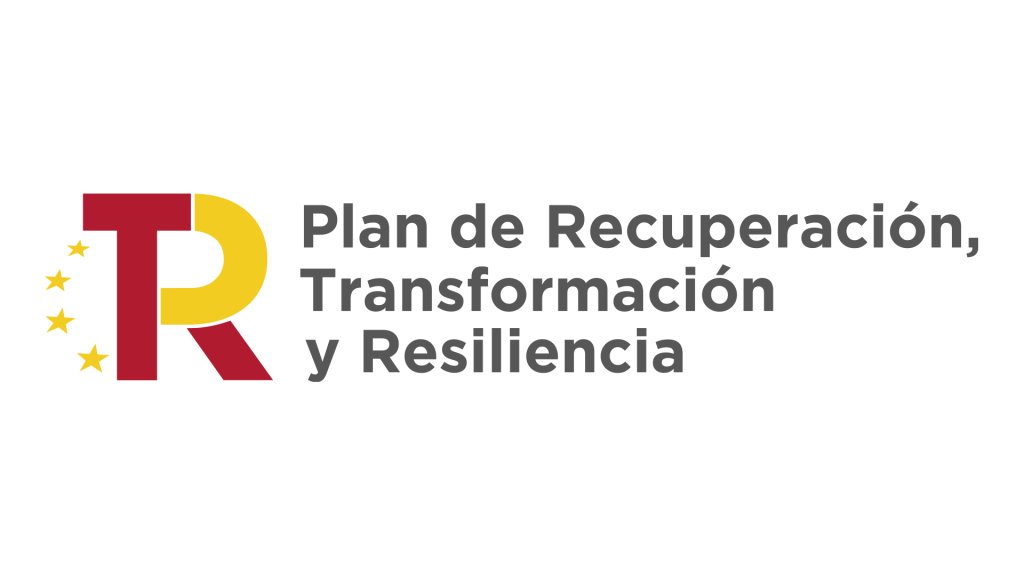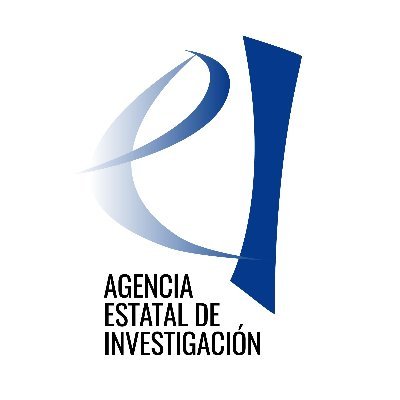Global change is the phenomenon related to anthropogenic impacts on the biosphere and its biodiversity. An impact that particularly affects industrialized countries is the abandonment of rural areas, with significant consequences in the transformation of the habitat and the dynamics of ecosystems. The mountainous regions suffer in particular from this abandonment, which generates the advance of forests and maquis with the consequent decline of the ecological communities of open spaces. In those regions, one of the traditional activities that are still maintained is extensive livestock farming, but little is known about its ecosystem services and its effects on the spatiotemporal dynamics of the ecological communities associated with pastures. Although livestock plays the role that wild ungulates once played in food webs, there is no scientific evidence about the optimal level of grazing that improves the management of biodiversity in mountain ecosystems and at the same time ensures the sustainability of the livestock sector.
The project will use a socio-ecological conceptual framework, which will holistically assess the influence that livestock management dynamics have on herbaceous plant and butterfly communities, which are excellent bioindicators of the conservation state of mountain ecosystems. The study will be carried out in the Pyrenees at different spatial-temporal scales, using both field data that we have collected in recent decades and those generated in the project. On a local scale, we will consolidate a pilot study that we started in a valley in the eastern Pyrenees with experimental grazing exclusion and the tracking of a hundred cows with GPS/GSM technology. This combined and detailed analysis of the impacts of herbivory on the study communities will provide results applicable to the green transition (management and recovery of biodiversity) and the digital transition (livestock management).
At a regional scale, we will collect data in four Pyrenean Natura 2000 with spatial variability of livestock pressure, including pasture abandonment and vegetation encroachment, to analyze its influence on the spatial dynamics of the study communities. On a temporal scale, we will take advantage of the data that have been collected during the last three decades in twenty Pyrenean itineraries of the Catalan Butterfly Monitoring Scheme, to explore their temporal dynamics and the influence of the climate, of the different life strategies of each species, and the different models of livestock management. In parallel, we will explore the vegetation dynamics in the interdisciplinary frontier between ecology and mathematics for predicting the possible existence of critical phase transitions between habitats (from grasses to shrublands), generated by processes of facilitation, competition and herbivory.
The project will generate, on the one hand, relevant results for the ecology of populations and communities, and on the other, scientific evidence applicable to the management of socio-ecological systems and the conservation of alpine ecosystems. We intend to contribute to the international leadership of science in our country in the fields of ecology, socio-ecology and biodiversity conservation, and to generate both basic and applied scientific knowledge, through interdisciplinary research targeting green and digital transitions.
Researchers of the project:
Constantí Stefanescu, Andreu Ubach (Museu de Ciències Naturals de Granollers)
Federica Ravera (Universitat de Girona)
Tomás Lázaro (Universitat Politècnica de Catalunya (BarcelonaTech) · Departament de Matemàtiques)
Arantza Aldezabal (Euskal Herriko Unibertsitatea)
Meg Crofoot (Max Planck Institute of Animal Behavior, Constanz – Germany)
WATCH VIDEO: How a few cows move over one week
